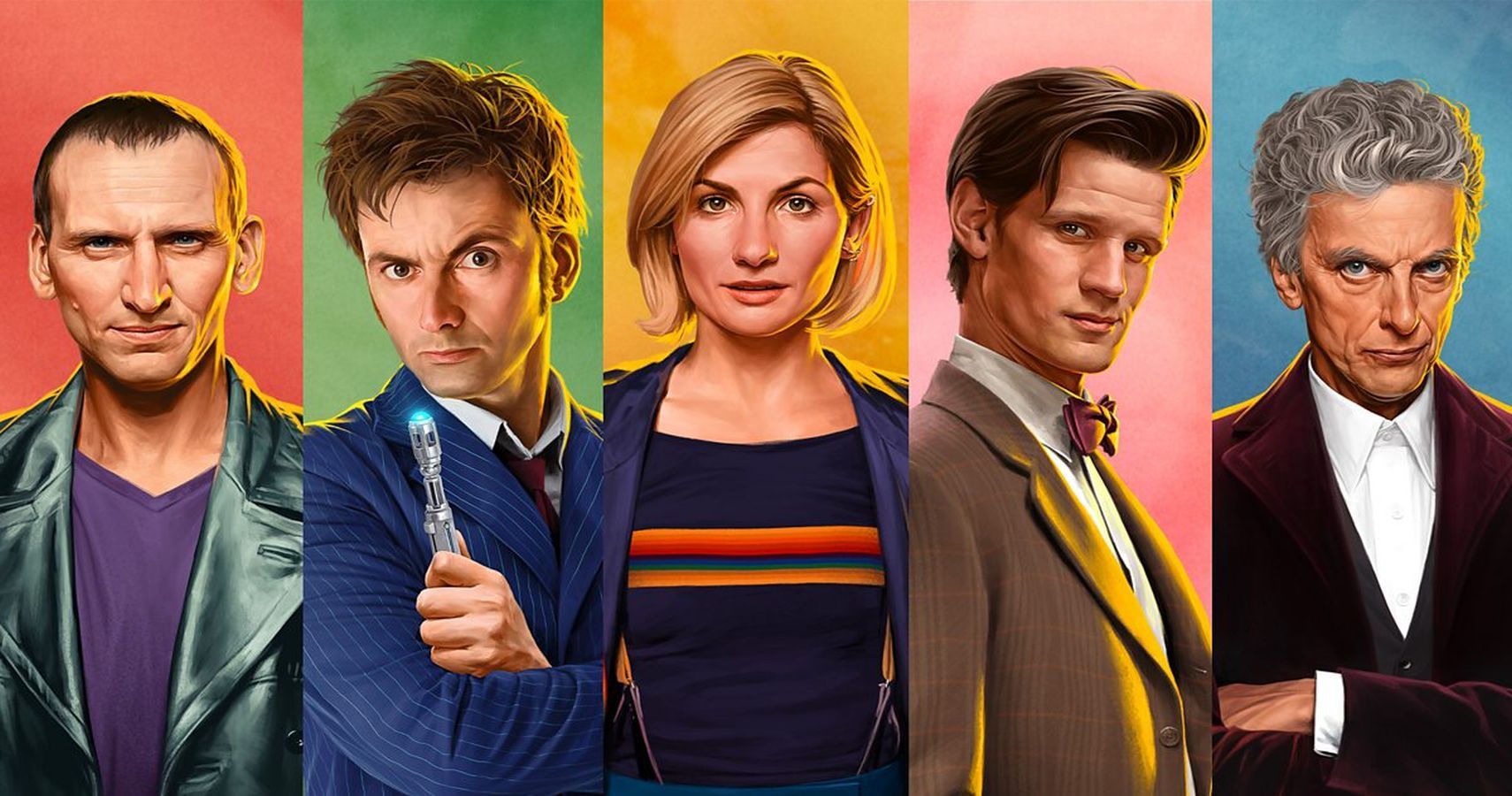
In 2005, the Doctor Who revival brought the Doctor back to the forefront of British television with its episodes full of adventures, terrifying monsters, and lovable companions. Five Doctors have entertained Whovians over the last sixteen years, with every single one experiencing the highs and lows of the timey-wimey happenings inside the TARDIS.
Twelve seasons later, the BBC show has accumulated well over a hundred and fifty episodes and has solidified the Doctor's place in the sci-fi genre. While New Who is known to suffer from inconsistent seasons, with both standout episodes and duds, it's always important to highlight the best stories in the show's history.
12 Twelfth Season: Fugitive Of The Judoon (7.3)
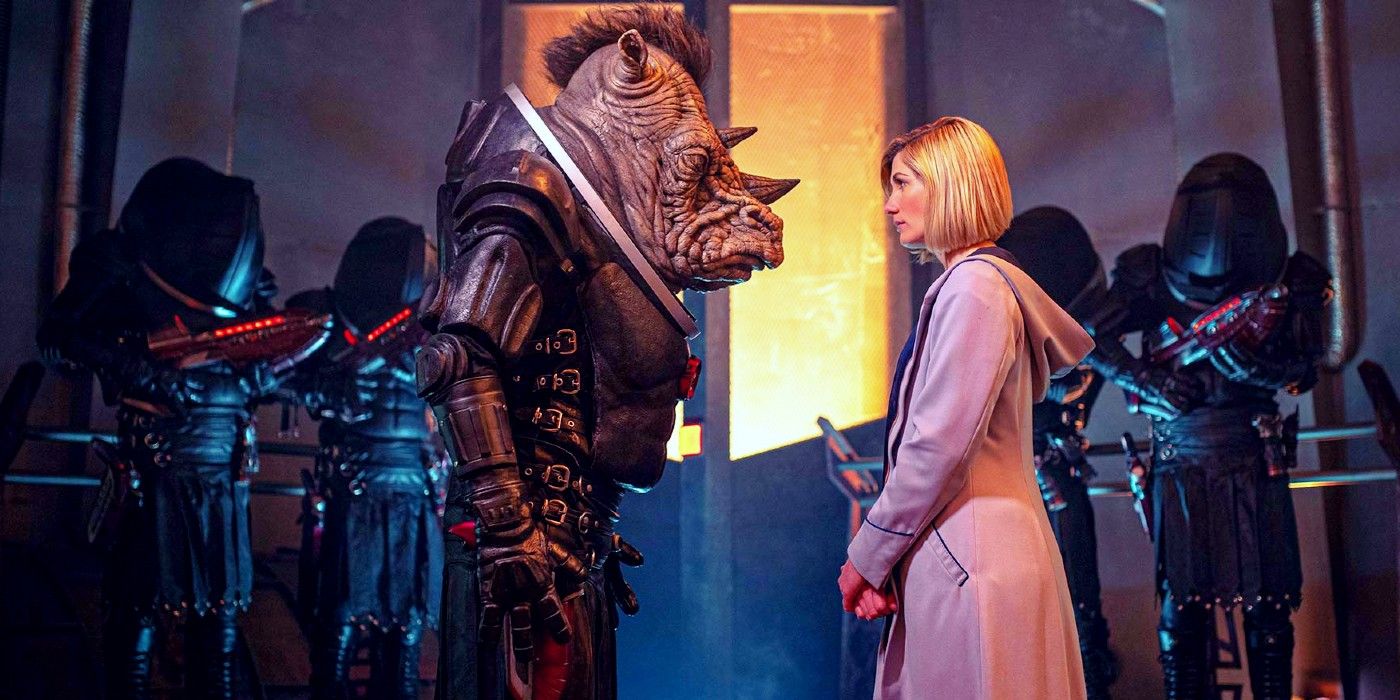
When the Judoon arrive on Earth set on finding a mysterious fugitive, the Thirteenth Doctor and her companions, Graham, Ryan, and Yaz, try to find a way to stop them from destroying the planet in the process. While the Doctor interrogates a possible subject, a woman named Ruth, Graham meets an old friend of the Doctor's, ex-Torchwood agent Jack Harkness.
"Fugitive of the Judoon" marks the return of John Barrowman ten years since the actor last appeared in the series. Despite receiving mostly positive reviews from critics and being the highest-rated episode of the twelfth season, "Fugitive of the Judoon" is mostly remembered for its controversial nature. The introduction of a pre-Hartnell incarnation of the Doctor was seen as a low blow to his memory and legacy, with many fans completely rejecting the new lore.
11 Eleventh Season: Demons Of The Punjab (6.4)
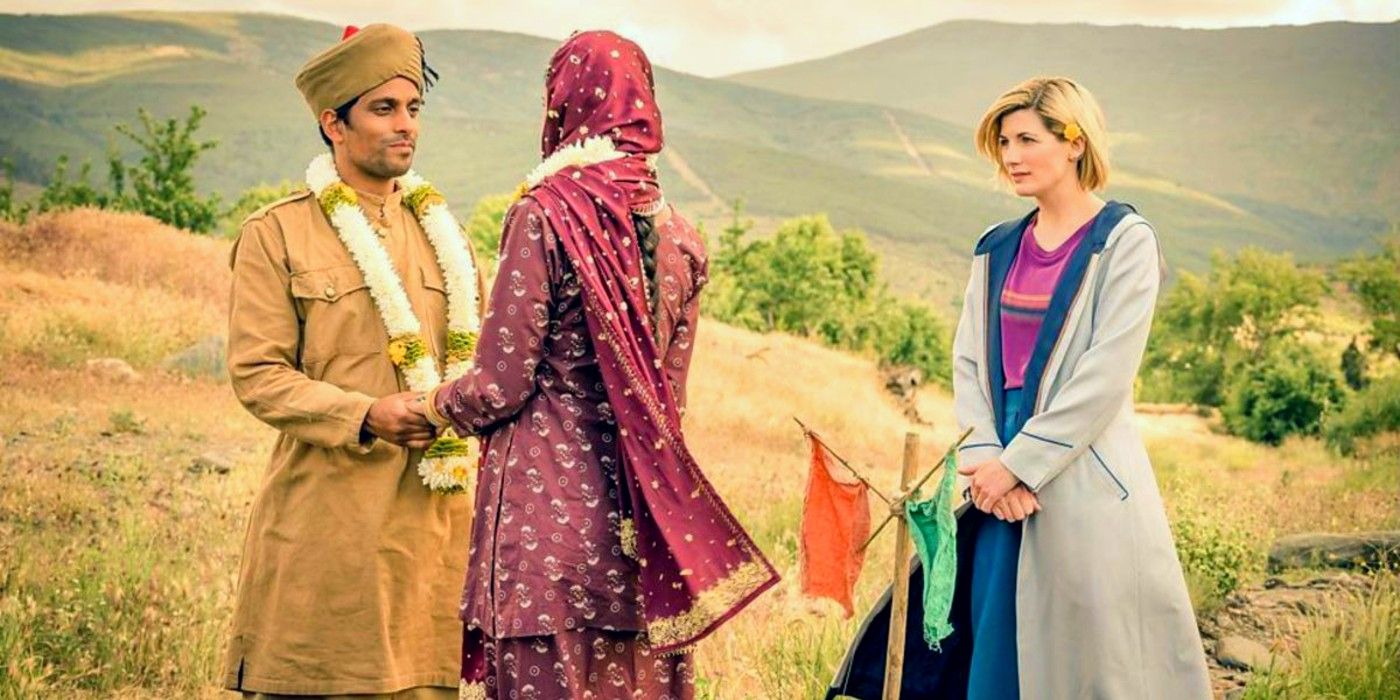
When Yaz receives an enigmatic present from her grandmother, she asks the Thirteenth Doctor to take her back in time so she can learn more about her family. Upon arriving in the 1940s during the partition of India, Yaz is shocked to find out her grandmother is about to marry someone who isn't her grandfather. As Team TARDIS investigates, a group of aliens begins wreaking havoc in town.
"Demons of the Punjab" has been praised for its educational and adult treatment of such an important historical event. The episode has also been recognized for its cinematography and script but has been criticized for its weaker sci-fi elements.
10 Tenth Season: World Enough And Time (9.2)
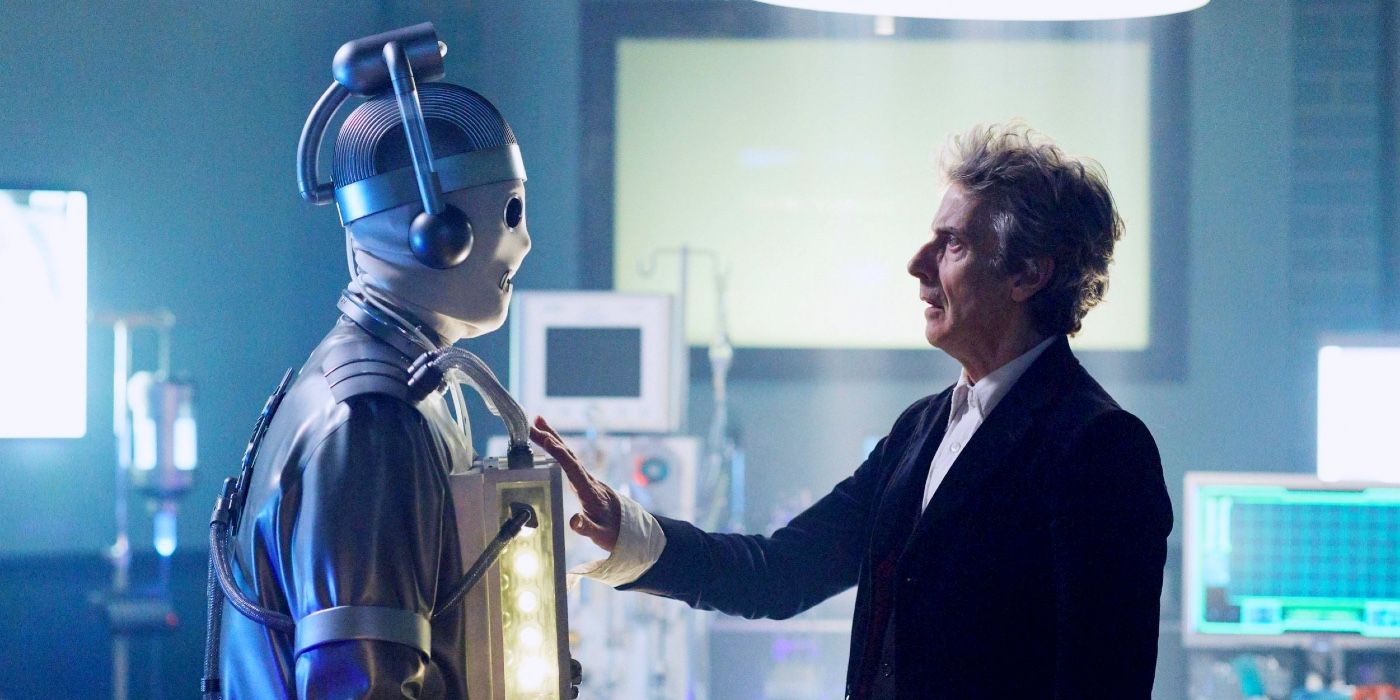
When the Twelfth Doctor and his companions, Nardole, Bill, and Missy, respond to a distress call from a spaceship, they hurry to help with disastrous consequences when Bill is taken. While trying to find a way to bring her back, the Doctor finds himself up against the Mondasian Cybermen and two versions of his old frenemy, the Master.
"World Enough and Time" features the long-awaited return of the Mondasian Cybermen after more than forty years since their last appearance. The episode is also the first multi-Master story, as John Simm returns to play the character alongside Michelle Gomez's Missy.
9 Ninth Season: Heaven Sent (9.6)
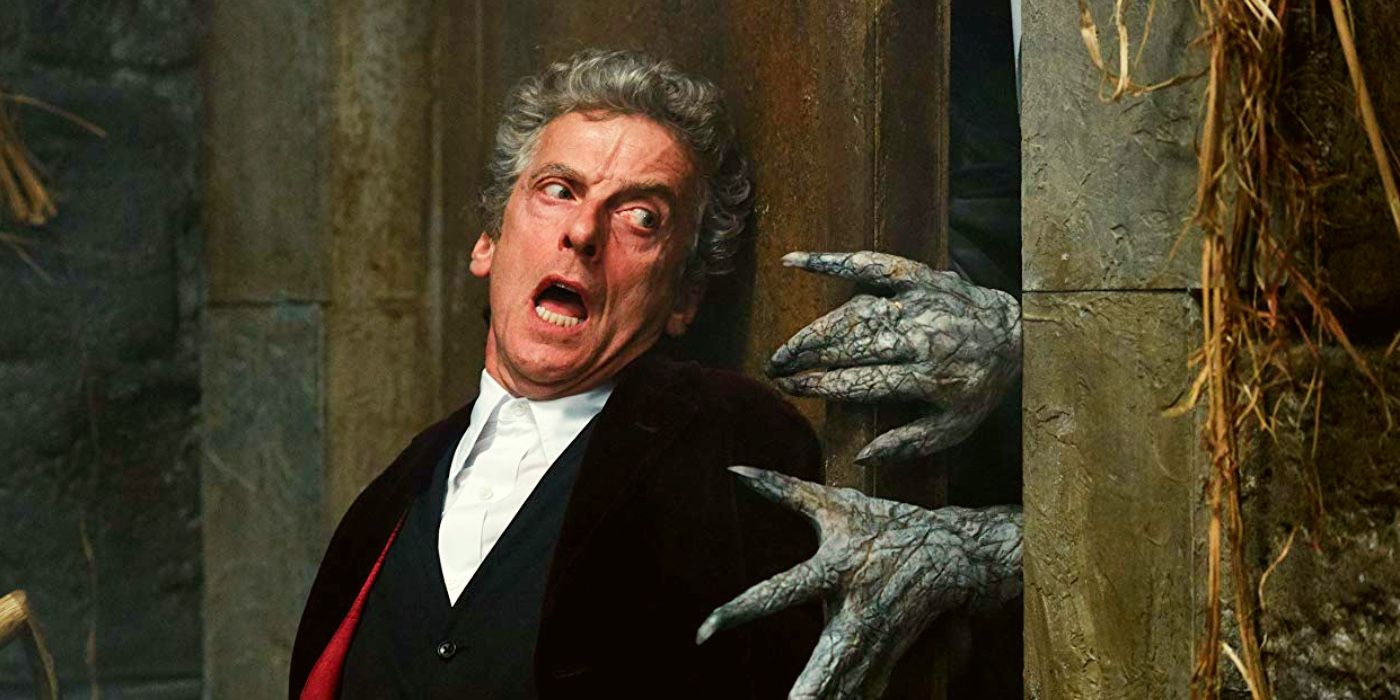
Still grieving Clara's recent death, the Twelfth Doctor finds himself pursued inside a dark castle by a mysterious creature who keeps interrogating him. As he tries to make sense of what's happening, the Doctor keeps returning to his mental TARDIS to receive help from his memories of Clara.
A universally beloved episode, "Heaven Sent" is often regarded as Peter Capaldi's magnum opus as the Twelfth Doctor. It explores the Doctor's psyche as he deals with Clara's demise and his newfound solitude, playing like a Shakespearean soliloquy solely led by Capaldi's acting, Moffat's brilliant writing, and the incredible visuals in the episode. It remains the second highest-rated episode of the series' history on IMDb.
8 Eighth Season: Listen (8.9)

In "Listen," the Twelfth Doctor attempts to discover an elusive creature hiding in plain sight. Meanwhile, Clara ponders about her disastrous date with Danny Pink and wonders about how to proceed. When the Doctor tells her of his endeavor, she joins him in his plan and unintentionally ends up meeting unexpected versions of the two most important men in her life.
"Listen" is a great example of Doctor Who's more conceptual and scarier episodes, with a fantastic script that mixes sci-fi with psychological drama. It received large critical acclaim and was nominated for both the Hugo and Bram Stoker Awards in 2015. The episode was also the first to show the Doctor pre-Hartnell through glimpses of his childhood.
7 Seventh Season: The Angels Take Manhattan (9.0)

The Eleventh Doctor takes Amy and Rory to present-day New York to share a picnic in Central Park. When Rory is sent back in time by the Weeping Angels, he meets up with his daughter River Song, who's posing as a detective in the 1930s.
Amy and Rory say their last goodbyes in "The Angels Take Manhattan." The episode is a fan-favorite despite its bittersweetness, as it also marks the return of the terrifying Weeping Angels and the introduction of their newer, smaller version: the Cherubs. It was mostly filmed in New York and Cardiff and was nominated for a 2013 Hugo Award, with critics praising the episode as a great ending to Amy and Rory's era.
6 Sixth Season: A Good Man Goes To War (9.1)
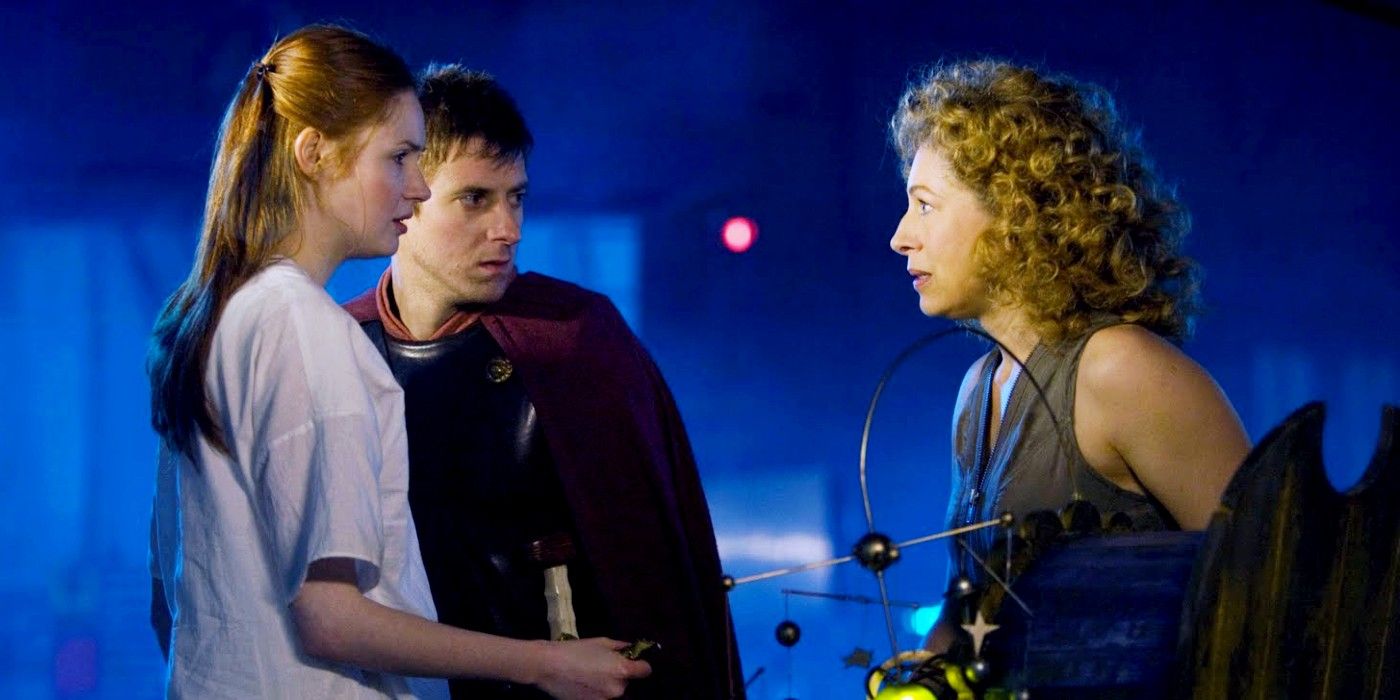
The Eleventh Doctor and Rory gather a team of the Doctor's most powerful acquaintances in order to break Amy out of the Silence's hold. They take Demons Run by storm, but a strange religious faction of the Silence made up of Headless Monks might just ruin their plans.
"A Good Man Goes To War" reveals one of the best-kept secrets of the show: the identity of River Song. The episode serves as the mid-series spring finale of the sixth season and formally introduces the Silence as the season's main villain. It also marks the debut of the Paternoster Gang, which includes the Sontaran Strax, the Silurian Madame Vastra, and her then-helper Jenny.
5 Fifth Season: Vincent And The Doctor (9.3)
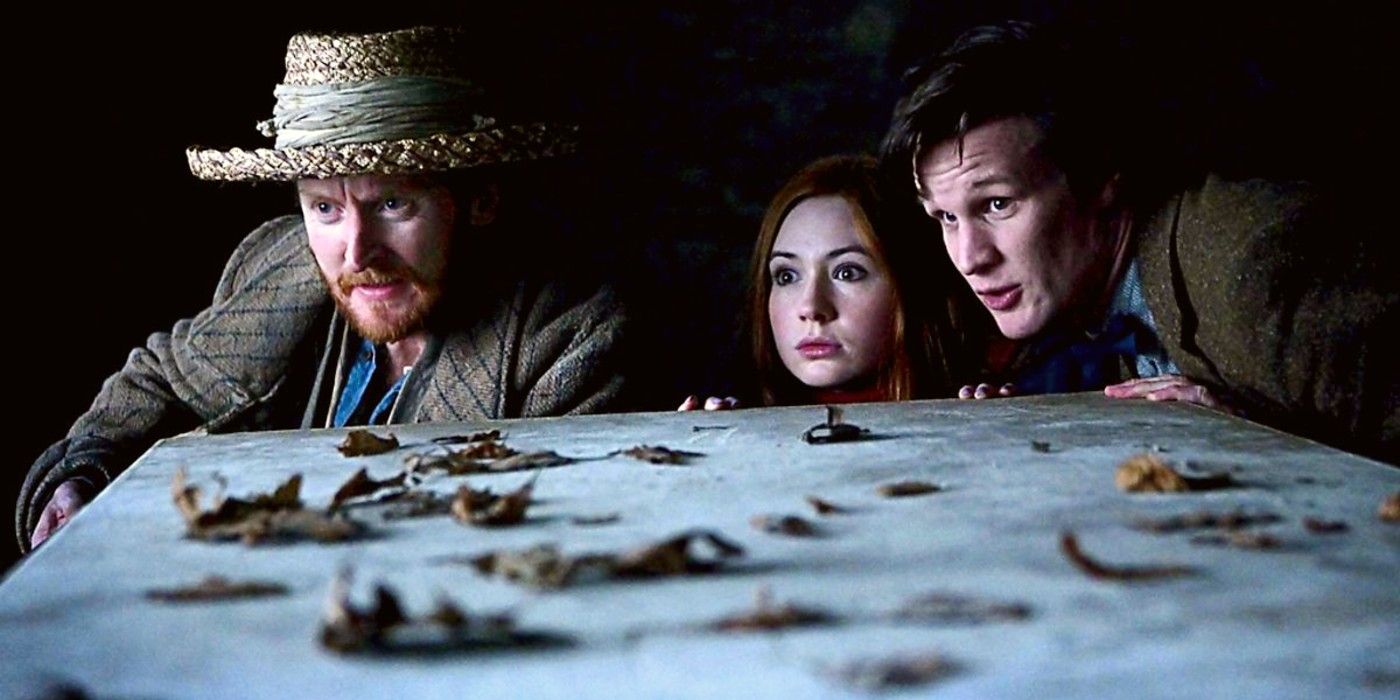
The Doctor takes Amy to a Vincent Van Gogh exhibition where he notices something strange lurking in one of the paintings. Intrigued, the two travel back in time to investigate and befriend the famous painter in the process.
A favorite of many for its thoughtful and beautiful homage to Van Gogh, "Vincent and the Doctor" is widely considered to be one of the best standalone episodes of New Who. It wisely uses its main antagonist, a chicken-like creature named Krafayis, as a metaphor for the Dutch painter's battle with mental illness. The episode also recreates several of Van Gogh's paintings in its cinematography and was nominated for several awards including one at the 2010 Nebula Awards.
4 Fourth Season: Forest Of The Dead (9.5)
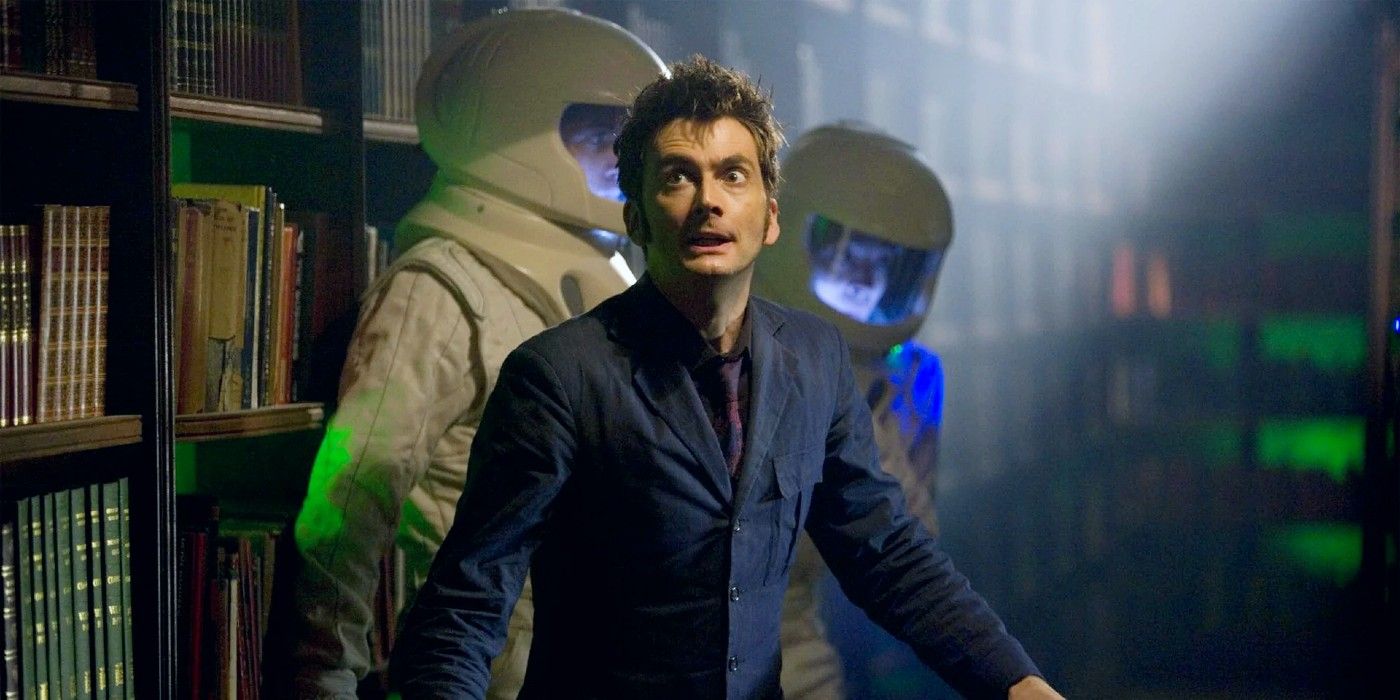
In "Forest of the Dead," the Tenth Doctor has to save thousands by sacrificing one person. With Donna trapped inside the Library's database, the Doctor collaborates with the mysterious River Song and her team of archeologists against the microscopic creatures attacking them from the shadows.
"Forest of the Dead" continues from the events of "Silence in the Library." The two-parter is often regarded as one of the best in the show's history, with a high Audience Appreciation Index of 89. It also debuted the Vashta Nerada, and River Song as a future close acquaintance of the Doctor.
3 Third Season: Blink (9.8)
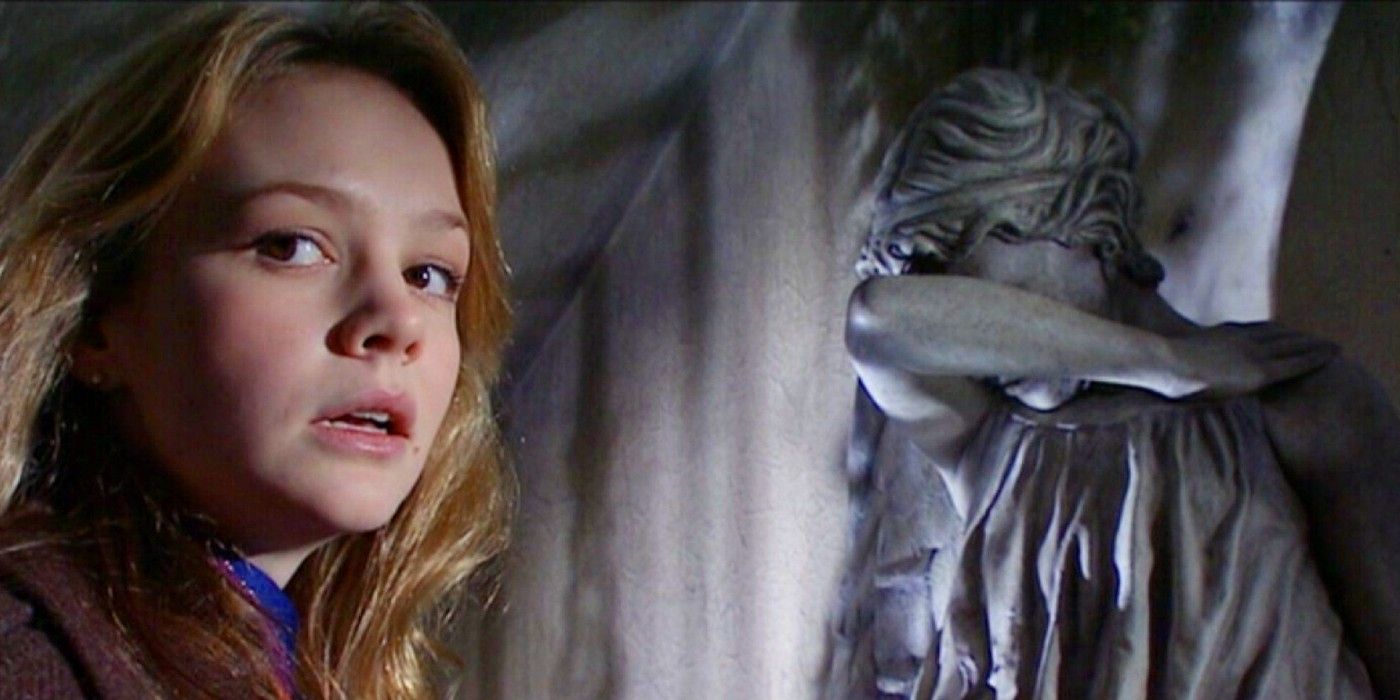
After several close encounters with eerie winged statues and impossible tales of time travel, Sally Sparrow seeks help from a strange man who keeps appearing as an easter egg in several DVDs.
"Blink" has become a classic of New Who for its strong script and frightening visuals. Despite being a Doctor-lite episode, "Blink" holds the number one spot as the highest-rated Doctor Who episode on IMDb and has won various awards including two BAFTAs for Steven Moffat's writing and a Constellation Award for Carey Mulligan's acting. The episode also introduces the Weeping Angels, which would return in the fifth season.
2 Second Season: Doomsday (9.3)
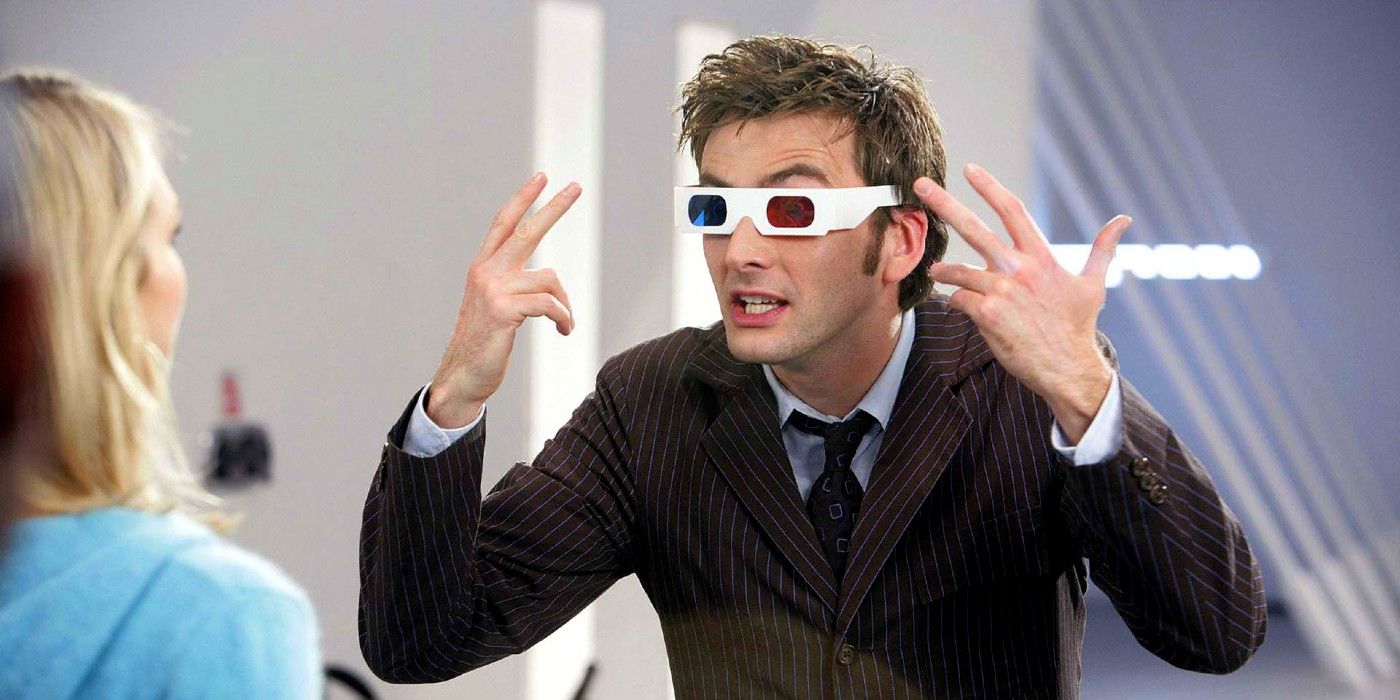
With both the Daleks and the Cybermen planning to destroy the Earth, the Tenth Doctor and Rose must find a way to prevent the worst from happening. But when Rose ends up stranded in a parallel universe with no way to return, the Doctor must face separating from her, perhaps for good.
Billie Piper leaves the lead companion position in "Doomsday," though she would return to reprise her role as Rose in a later season. The episode marks the first time the Daleks and the Cybermen featured in the same episode and was positively received by critics and fans alike. The scene where the Doctor and Rose say goodbye at the end of the episode was voted as the greatest sci-fi moment ever in a poll by SFX magazine.
1 First Season: The Empty Child (9.2)
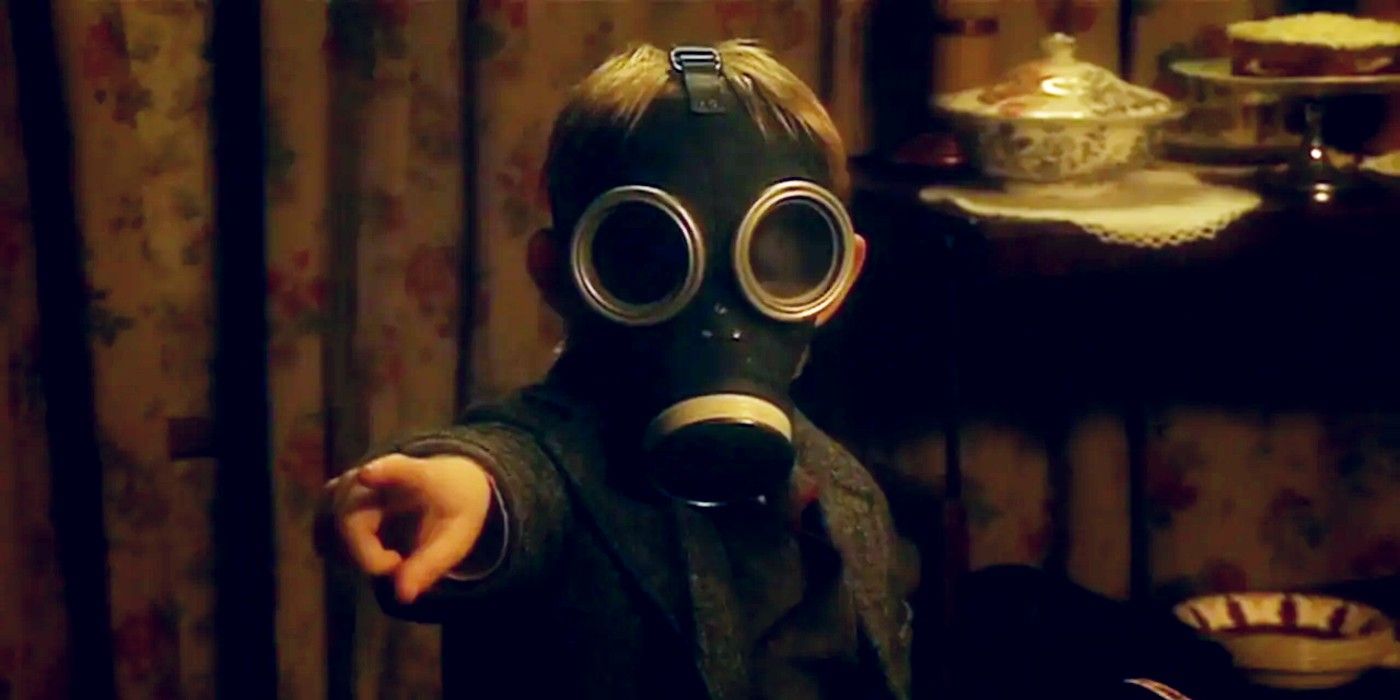
After materializing in London during the Blitz, the Ninth Doctor and Rose encounter a strange epidemic forcing patients to sprout a gas mask on their faces. Together with the suave Time Agent Jack Harkness, they must find a way to reverse the effects.
"The Empty Child," and its second part "The Doctor Dances," introduce John Barrowman as Jack Harkness, who would go on to star in the Doctor Who spin-off Torchwood. Both episodes are frequently cited as two of the best in the show for their take on the "creepy child" trope and its blend of sci-fi and horror elements. It often ranks among the top ten Doctor Who stories in several publications, including Doctor Who Magazine.
0 Comments